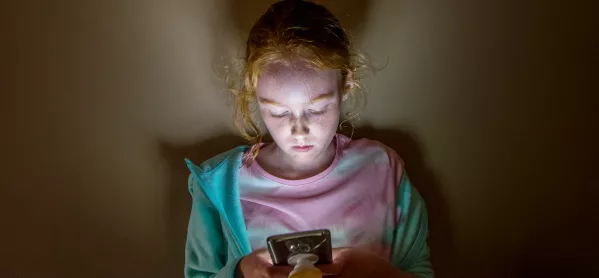Teachers ‘at a loss’ with struggling readers

A third of pupils in every class struggle to keep up with lessons because of their reading ability, a survey of teachers has found.
Teachers who responded to the poll have warned that they feel “at a loss” when helping struggling readers, with eight in 10 telling GL Assessment that they “sometimes” don’t feel confident about how to support such pupils.
Only 17 per cent said they “always” feel confident, according to the survey of 614 teachers working in primary and secondary schools.
The findings come after England’s Programme for International Student Assessment scores - a comparison of education outcomes between high- and middle-income countries - showed that reading performance has dropped, on average, since 2018.
Last year’s key stage 2 Sats results from 2023 showed that fewer Year 6 pupils reached the expected standard for reading.
‘Troubling picture’ for reading
In today’s report, a further four in five (83 per cent) of teachers said that the parents of the pupils they teach find it difficult to encourage reading at home.
Almost two-thirds (65 per cent) said they thought this was most likely owing to digital distractions.
Jonathan Douglas, chief executive of the National Literacy Trust, who has written a foreword to the report, said the “current state of children and young people’s reading in the UK paints a troubling picture”.
He added that the challenge is “being keenly felt in the classroom”, with the survey finding that a third of pupils (33 per cent) are weak readers, according to their teachers, and need additional help to keep up with the lessons they teach.
- Feature: How to get more children reading for pleasure
- International: UK’s Pisa scores drop in maths, science and reading
- Research: Girls’ reading and maths harder hit by Covid
On average, a quarter of pupils (26 per cent) are taken out of class for 30 minutes or more each week to receive additional reading support, the survey found.
This means that 2.5 hours of curriculum time weekly - which equates to approximately 16 days of the academic year - is consequently lost, the polling further found.
Although nearly half of teachers polled (47 per cent) do not mind losing curriculum time for reading support, two-fifths (38 per cent) feel they have to adjust their teaching around it, and one in ten (11 per cent) find it frustrating as it puts pressure on them getting through the curriculum.
Almost nine in 10 (87 per cent) said they feel personally responsible for helping weak readers improve, although a similar proportion (84 per cent) also admitted that they have felt at a loss at times to know how to do so.
Outside of the classroom, teachers worry about a variety of factors that lead to parents struggling to encourage pupils to read at home.
While two-thirds of teachers (65 per cent) blame digital distractions, a similar proportion (62 per cent) attributed it to parents not reading themselves.
Half (53 per cent) said parents are too busy, and two-fifths (43 per cent) said that parents want to avoid an argument, or that they don’t see the benefits of reading (42 per cent).
Fewer pupils enjoy reading
According to the latest UK statistics from the National Literacy Trust, less than half (43 per cent) of children and young people aged eight to 18 say they enjoy reading in their free time - the lowest figure since the survey began in 2005.
This is also reflected internationally - just 29 per cent of pupils in England said they enjoyed reading, compared with 46 per cent of their peers internationally according to the most recent Progress in International Reading Literacy Study findings.
Last year’s key stage 2 Sats prompted a teacher outcry over the reading paper, with pupils left “stressed” and “crying” owing to the difficulty of the exam.
And while Ofqual judged the reading test to be effective, analysis showed that the lowest-attaining pupils found last summer’s test more difficult than previous papers.
You need a Tes subscription to read this article
Subscribe now to read this article and get other subscriber-only content:
- Unlimited access to all Tes magazine content
- Exclusive subscriber-only stories
- Award-winning email newsletters
Already a subscriber? Log in
You need a subscription to read this article
Subscribe now to read this article and get other subscriber-only content, including:
- Unlimited access to all Tes magazine content
- Exclusive subscriber-only stories
- Award-winning email newsletters



